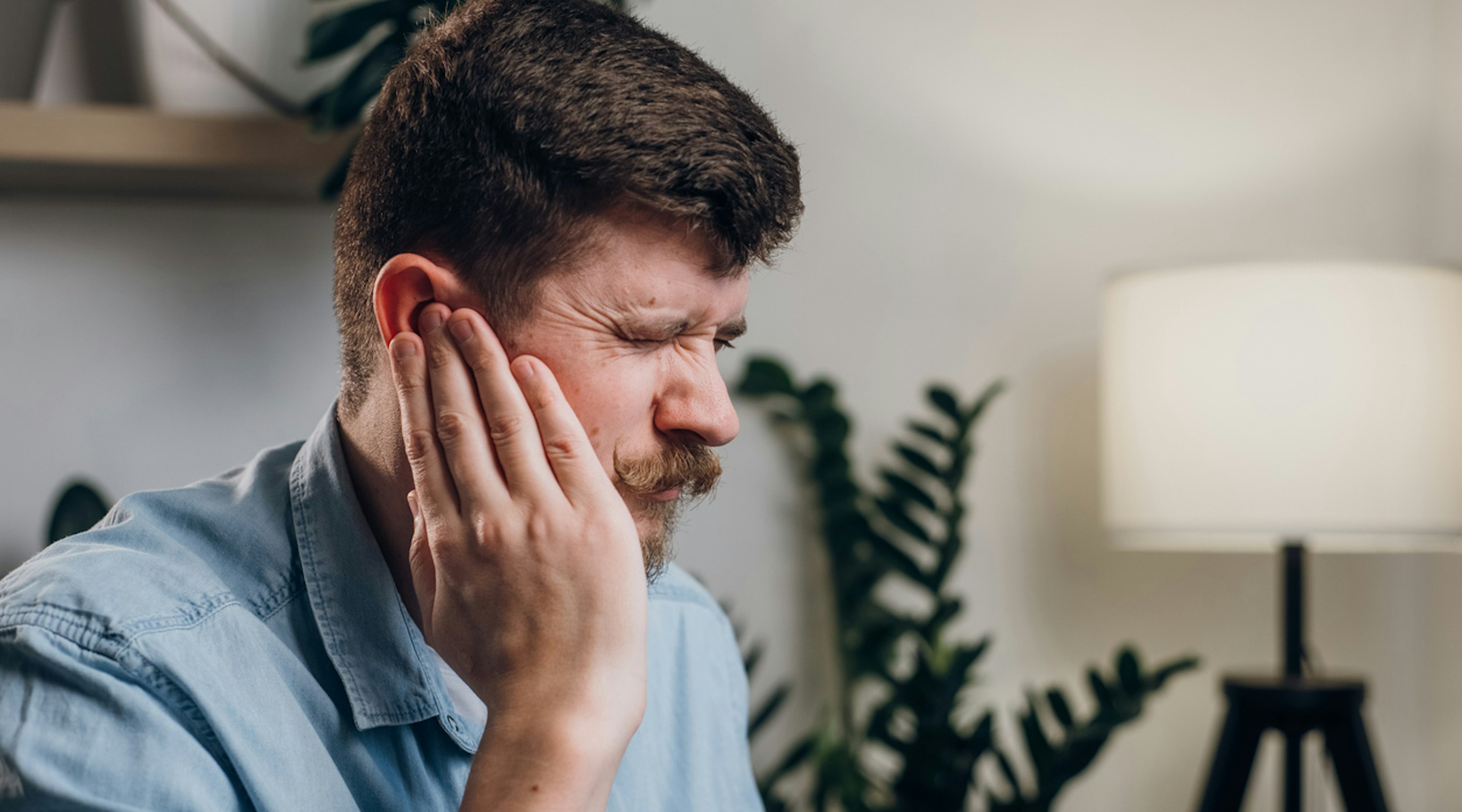Trigeminal Neuralgia and medical cannabis: What you need to know
5 min read
Emily Ledger
Trigeminal neuralgia is a rare chronic pain disorder, that causes sudden, severe facial pain. The condition is relatively rare which, as is often the case, often means the cause is not fully understood - making effective treatment difficult to achieve. In this article, we explore trigeminal neuralgia in more detail, including conventional treatments and how patients are seeking relief with medical cannabis.
Contents
What is trigeminal neuralgia?
Trigeminal neuralgia (TN) - also known as tic douloureux - is a chronic pain disorder that causes unpredictable attacks of severe pain in the facial region. The attacks, which are often described as a sharp shooting pain, start suddenly and can last anywhere from a few seconds to around two minutes. In most cases, TN affects just one side of the face; however, some people may experience attacks in both sides of the face at different times.
Symptoms of trigeminal neuralgia
Trigeminal neuralgia symptoms can be triggered by certain actions, including smiling, chewing, or swallowing. TN pain is most commonly felt in the teeth, lower or upper jaw, and cheeks. In some cases, individuals may also experience pain in the forehead or eye region, and some patients may also experience aching, throbbing, or burning sensations between attacks.
What causes trigeminal neuralgia?
There are three main types of TN, each of which has a different cause:
- Classic/classical trigeminal neuralgia: Most commonly caused by a blood vessel compressing trigeminal nerve, placing pressure on it. This is the most common type of TN.
- Secondary trigeminal neuralgia: Occurs when TN is caused by another condition or medical problem. This can be due to a tumour, cyst, arteriovenous malformation, facial injuries or traumas, or multiple sclerosis.
- Idiopathic trigeminal neuralgia: This term is used when the cause of TN cannot be determined. This is the least common type.
How does TN affects daily life?
The pain associated with TN can have a significant impact on patients’ quality of life, making it difficult to perform everyday tasks and impacting professional and personal goals and relationships. The condition can also cause significant emotional strain and increase the risk of developing anxiety and depression.
Conventional trigeminal neuralgia treatment
Diagnosing trigeminal neuralgia can take a long time as it may initially be mistaken for other conditions. For example, some patients may initially believe (or have been told) they are suffering from cluster headaches, dental problems, or sinusitis. It is usually necessary to undergo a physical examination as well as MRI imaging to identify structural abnormalities that may be associated with the condition.
Once TN diagnosis has been confirmed, several treatment options may be considered.
Medication for trigeminal neuralgia
The first-line therapy for TN are medications to relieve pain. This may include anticonvulsant medications that can block pain signals and reduce the frequency of TN attacks; however, common painkillers, such as aspirin, ibuprofen, and opioids, are not generally effective at managing trigeminal neuralgia pain.
Surgery for trigeminal neuralgia
In some cases, surgery may be considered, particularly if medications are unable to achieve adequate relief or are causing intolerable side effects. Several surgical procedures can be used to treat TN, including percutaneous, stereotactic procedures, and microvascular decompression.
Peter: Releaf medical cannabis patient
Medical cannabis for trigeminal neuralgia
Cannabis-based medicines can now be prescribed for a wide range of conditions, including rare conditions like trigeminal neuralgia. Specialist doctors may consider prescribing medical cannabis when at least two conventional treatments have proven inadequate at managing symptoms or caused intolerable side effects. So, can cannabis help trigeminal neuralgia? Let’s take a look at some clinical evidence.
A 2019 study aimed to assess the safety and efficacy of medical cannabis treatment in 42 patients with trigeminal neuralgia. Of the participants, 81% reported improvements in their TN symptoms, with the most efficacious dosage being a 1:1 ratio of CBD and THC. Moreover, 50% of participants were also able to reduce their opioid consumption.
A further study, published in 2023, followed the case of a 78-year-old female whose treatment with pharmacological treatments had become ineffective. Following the initiation of medical cannabis treatment, the researchers reported that the patient achieved a reduction in pain scores of more than 50% with minimal side effects.
Releaf patient, Peter, now receives a trigeminal neuralgia medical cannabis treatment after previously being prescribed the opioid OxyContin to manage his pain:
“With medical cannabis, it’s a different approach. I’m kind of attacking the whole condition, rather than just treating the pain, and that results in fewer and fewer times when my pain peaks…
“If I said it’s been life changing, that would not be an exaggeration. Medical cannabis can change people's lives. I just wish more people were aware that it’s out there and available.”
We also spoke to Releaf’s specialist clinician, Dr Michal Modestowicz, to ask how medical cannabis may benefit trigeminal neuralgia. He explained:
"Trigeminal neuralgia is an intense facial pain condition. Medicinal cannabis might provide pain relief by interacting with the endocannabinoid system to reduce pain signalling and inflammation, offering a new avenue for treatment."
Final thoughts
Trigeminal neuralgia can have detrimental effects on patients’ health and quality of life, making effective treatments vital. While conventional treatments may be initially beneficial, around half of patients find that pharmacological interventions become increasingly ineffective.
Cannabis-based medicines may help to make pain associated with trigeminal neuralgia- and co-occurring psychological symptoms - more manageable.
To learn more about whether medical cannabis could be right for you, complete our online eligibility checker to sign up for a consultation with one of our specialists today.
Share article
Did you like this article?
It is important to seek medical advice before starting any new treatments. The patient advisors at Releaf are available to provide expert advice and support. Alternatively, click here to book a consultation with one of our specialist doctors.
Elevate your wellness with medical cannabis
Get comprehensive care, convenience, and confidence with an all-in-one treatment plan.
Am I eligible?Authors
Emily, an accomplished content writer with a specialisation in cannabis and alternative health, leverages her five years in the sector to enhance education and diminish stigma around medicinal cannabis use.
Editorial Policy
All of our articles are written by medical cannabis experts, guided by strict sourcing guidelines, and reference peer-reviewed studies and credible academic research. Our expert clinical team and compliance specialists provide valuable insights to ensure accuracy when required. Learn more in our editorial policy.
Need more help?










